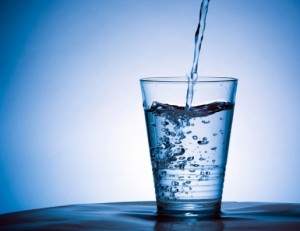 Drinking eight glasses of water a day is the key to hydration – or so they say. Of course, water accounts for 60% of our body weight, so it is important that we get enough.
Drinking eight glasses of water a day is the key to hydration – or so they say. Of course, water accounts for 60% of our body weight, so it is important that we get enough.
One of the longest-running medical myths is that eight glasses of water each day will keep you hydrated and healthy. Recently however, there have been some articles debunking this myth.
A 1945 recommendation from the Food and Nutrition Board of the National Research Council appears to be the origin of the “8 glasses a day” theory. The statement reads:
“A suitable allowance of water for adults is 2.5 liters (8.5 glasses) daily in most instances…. Most of this quantity is contained in prepared foods.”
Water is in nearly all the food we eat. It is in fruits, vegetables, juice, tea and coffee, and even in meat, poultry, fish and eggs. While too much coffee can dehydrate you, some research shows that when it is consumed in moderation, it provides similar hydration benefits as pure water. If you are consuming food and beverages high in water content, you are most likely consuming the water you need to stay hydrated for the day. However, the calorie-free benefit of drinking water for hydration outweighs the hydration benefits of juice or milk-and-sugar-laden coffee.
When researchers study hydration, they rarely focus on water alone as a fluid. Moreover, when the Mayo Clinic suggests hydration consumption habits in ounces, they clearly state “all fluid(s) count towards the daily total.”
It is also important to remember that fluid intake needs change based on your health concerns. If you’re sweating from a fever, or intense exercise, you lose more water through your skin, so you should be drinking more than the recommended 8 glasses a day. It is recommended that for every degree your temperature rises, add 3.5-5 ounces of water to your intake. You should also increase hydration if suffering from vomiting or diarrhea. Size also matters, as bigger people require more water intake than others.
How do you stay hydrated: the classic way (8 glasses of 8 ounces of water each day) or through your diet? Share your thoughts on this medical myth on our Facebook page.









